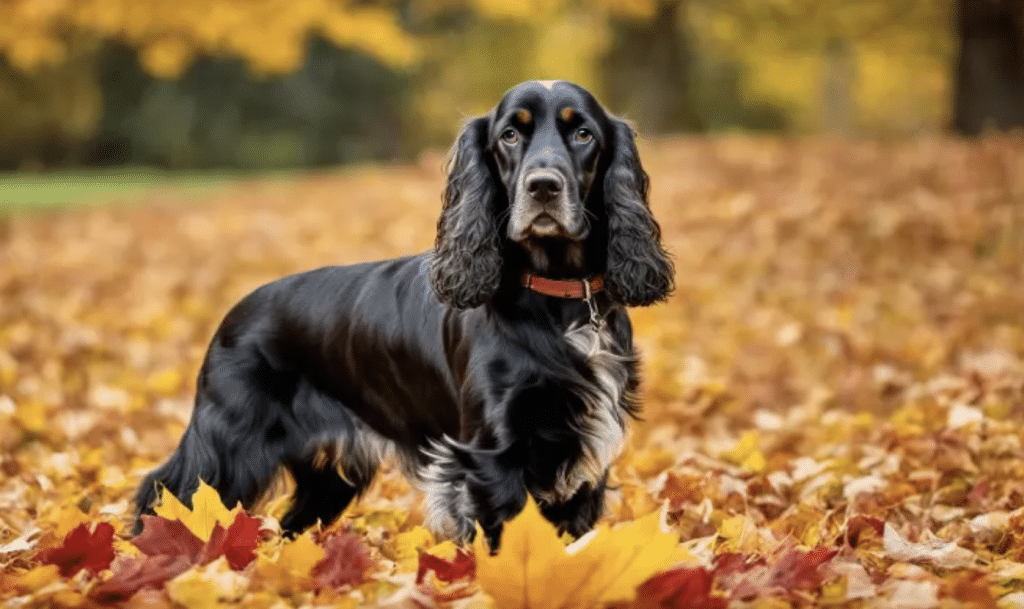The Cocker Spaniel is a happy dog, intelligent, and friendly; thus, they can be a very good companion for any family. Like any breed of dog, however, proper training in temperament and behaviour is always necessary for them to become well-behaved and well-balanced companions. This article discusses how responsible breeders of Cocker Spaniels approach puppy temperament and behaviour training to set them up for a lifetime of happiness.
Socializing Early: The Key to Temperament and Behaviour Training
Early steps toward training in temperament and behaviour involve the socialization of Cocker Spaniels. Puppies are born, and from 3 to 14 weeks, they go through that critical period of socialization during which they are most receptive to novel experiences, people, and other dogs. Good Cocker Spaniels breeders consider this stage of development quite vital and, thus, expose their puppies to various environments, sounds, people, and other pets.
This early socialization by breeders will prevent fear or aggressive behaviour when they get older. This can be done with simple matters like gentle exposure to different floor types, other house noises, and even the way their fur is groomed. That is how puppies develop into well-rounded, confident canines.
Positive Reinforcement Training
Other practices involved with responsible breeders with their puppies in Cocker Spaniels are positive reinforcements. This is a method where there is a mechanism present in which usually desired behavior is reinforced by treats, praise, or any other form of playing. This provides for encouragement one needs in repeated actions and behaviour.
Most breeders start training their puppies in Cocker Spaniel as young as possible teaching them to “sit,” “stay, and “come.” Positive reinforcement associates something pleasurable with the commands so that he will be more open to listening and obeying as he grows. This makes it very easy to build a trust relationship between the breeder and puppy and therefore in further training too.
Handling common Cocker Spaniel Behavioural Traits
Playful and affectionate, the Cocker Spaniels are dogs with their own kind of specific behavioural traits, just like all breeds. Some of them may be stubborn and hyperactive, which could be a bit difficult for new owners. Breeders try to fix those behaviours from very tender stages of a puppy with quite an awful lot.
For instance, Cocker Spaniels have a hunting sensation and are thus compelled to run after small animals or objects. Responsible breeders realize this trait and start the puppies early to learn to focus and divert energy to other constructive ways. This may also be achieved by giving toys or structured plays in order to enhance their impulse control.
Separation anxiety affects Cocker Spaniels, too, as dogs are social pets and they easily get attached to the families they live with. It would be quite useful if breeders could help the puppies get familiar with their staying alone for short periods of time, as that decreases the possibility of anxiety issues in adulthood.
Establishing a Routine Free from Fuss
Consistent training teaches temperament and behaviour in puppies. Breeders set up a soft, repetitive daily cycle that lets the puppy know what is going to happen: at what time they will be fed, time to play, nap, and time for learning sessions or trainings.
They also place the puppies in a stable environment so they grow well. Dogs of this breed are the ones that love routine and structure because it gives them the feeling of safety and sureness of oneself. Well-set boundaries and a regular daily schedule will enable the breeders to set good habits and a well-balanced temperament for the puppies.
Preparing for the Transition to a New Home
They would make sure the puppies are going well prepared, in a way, once the puppies are to leave to go for their respective owners. Already socialized and attaining some basic training to ease up the furtherance in developing the puppy with a new owner. Giving some new owner tips on how they could reinstate reinforcement in training at home and guiding through possible behavioural problems that might occur within the development.
In return, breeders get the puppies ready for an easy transition based on this method of raising a happy relationship between the puppy and his future family. The procedure minimizes possible behavioural problems; it ensures that your puppy will face less stress adjusting to a new life.
With early socialization experience, positive reinforcement, and continued training, breeders are in a unique position to make choices that help mould a puppy’s temperament and behaviour. Breeders will assist puppies in taking up the above-mentioned aspects of concern so as to make them confident, loving dogs that always try to be on their best behaviour. If getting a Cocker Spaniel for yourself, you ought to know from which breeder to trust based on whether the breeder considers the dog’s temperament or not and gives, or provides behavioural training to your puppy-a way of assuring prosperous future of you and your puppy together.

